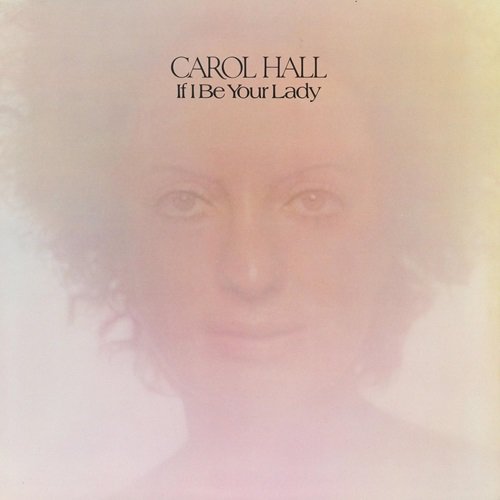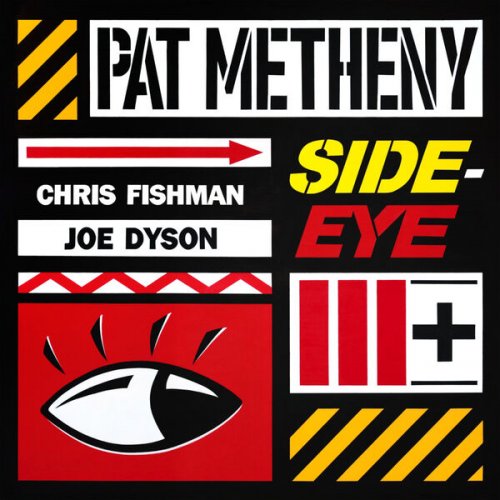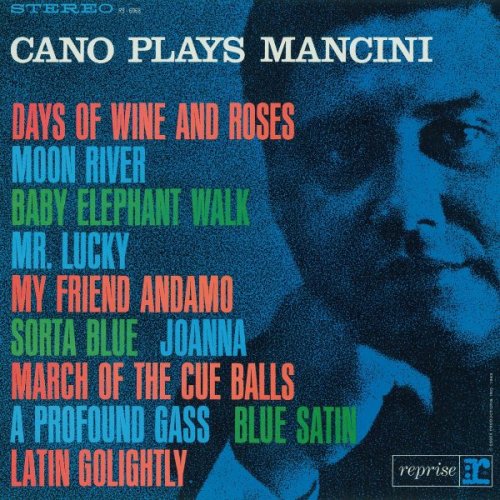Stanton Moore - III (2006)
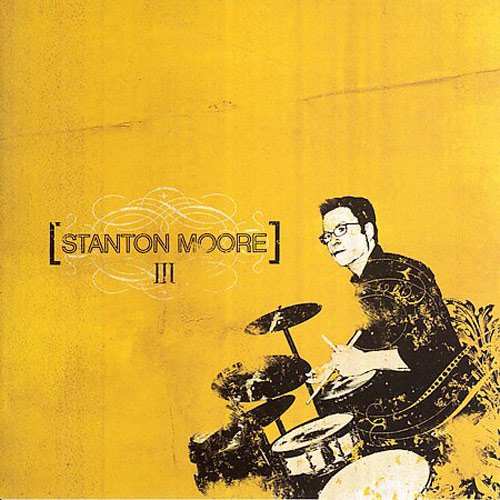
Artist: Stanton Moore
Title: III
Year Of Release: 2006
Label: Telarc
Genre: Jazz, Funk
Quality: FLAC (tracks + .cue, log, artwork)
Total Time: 54:47
Total Size: 338 MB
WebSite: Album Preview
Tracklist:Title: III
Year Of Release: 2006
Label: Telarc
Genre: Jazz, Funk
Quality: FLAC (tracks + .cue, log, artwork)
Total Time: 54:47
Total Size: 338 MB
WebSite: Album Preview
01. Poison Pushy [04:17]
02. Licorice [03:54]
03. Big Uns Get the Ball Rolling [05:44]
04. Chilcock [06:40]
05. (Don't Be Comin with No) Weak Sauce [05:06]
06. Dunkin in the Deep [06:40]
07. Maple Plank [06:29]
08. Water from an Ancient Well [07:14]
09. When the Levee Breaks [05:39]
10. I Shall Not Be Moved [02:59]
Personnel:
Stanton Moore - drums
Robert Walter - Hammond B3 organ
Will Bernard - guitar
Skerik - tenor saxophon
Mark Mullins - trombone
Something must be up at Telarc Records. Long renowned as a blues and either straight or smooth jazz label, they've been branching out. Earlier in 2006 the label kicked out the killer One-Two Punch by Mars Williams and Liquid Soul, easily their most consistent and groovalatious album, and now comes the third solo date by Galactic tub thumper Stanton Moore. III is Moore's least ambitious yet. (Yeah, baby, that's a good thang.) Moore, organist and composer Robert Walter, and king of the underground six-string slinger sophisticates Will Bernard have come up with a deep, ass-shaking groove jazz trio date. Oh yeah, remember all those dates on Blue Note by John Patton, Baby Face Willette, Lou Donaldson, and Fred Jackson? Uh huh. Now y'all are gettin' it. The only real difference is there isn't anything retro in the approach this trio lays down. These are future funk grooves made by basic instrumentation from the past. Moore's always been about shakin' it down, but in the past his sense of syncopation and adventurous instrumental dictates won out over solid, in-the-pocket funkifying. That's not to say that All Kooked Out! and its predecessor, Flyin' the Koop, weren't good records...hell, they were great. But they were complex jazz and soul studies, whereas III is nothing but greasy. Walter composed the vast majority of the tunes here, and rather than dig deep into the wildly progressive side of his nature explored exponentially with his 20th Street Congress or the Greyboy Allstars, he keeps his backbeat funk close to the vest here (check the opener, "Poison Pushy"). Even when employing saxophonist Skerik and trombonist Mark Mullins, on "Chilcock" he keeps the blues in the mix and digs into them heartily. The album opener, "Poison Pushy," touches the classic soul-jazz trio territory just enough to let you know what it's about, but then extrapolates on the paradigm with his arpeggios and Moore's chronic double-time breaks.
Bernard composes here, too; his "Dunkin' in the Deep" uses the horn section as well. He establishes the riff; the band digs in with Moore burning at the front end; and once it's good and gritty, the horns enter and push it outside a bit. Skerik's solo is a beautifully ugly thing to behold. He plays around Moore's circular beat and winds it outside enough to make the tune really go somewhere. There are a couple of real surprises here as well: the band's arrangement of Led Zeppelin's blues ripoff "When the Levee Breaks" is turned into mighty soul-blues and the reading of Abdullah Ibrahim's classic "Water from an Ancient Well" takes the South African composer/pianist's melody and allows it to serve the rhythm section without ever stretching it to the breaking point. Bernard's playing on this set is out of this world, and perhaps his best and most imaginative ever captured on tape. (Hopefully other players who hear this will be snapping him up for work. Listeners need another sideman's voice besides Bill Frisell's.) The platter ends on an emotional and tender read of the traditional "I Shall Not be Moved," with Bernard playing slide guitar to state its gospel-like melody as Walter plays single, long-breathing chords quietly in the background. Moore enters with a quiet march beat on the tom-tom and the tune stays quiet, dignified, and spiritual. Without the electricity it could have come from the 19th century, played on an accordion with a drummer playing a roll on his marching tom. The album is transformed from Saturday night stomp to Sunday morning stillness and moves off into it. As a bandleader, Moore's got it all: he has the right players for whatever he might attempt, and this is the finest example of that yet. It's from the heart, and it's got all the sass, spit, vinegar, and laughter that the great soul-jazz records of old had, and proves that the format isn't done by a long shot. ~ Thom Jurek
Bernard composes here, too; his "Dunkin' in the Deep" uses the horn section as well. He establishes the riff; the band digs in with Moore burning at the front end; and once it's good and gritty, the horns enter and push it outside a bit. Skerik's solo is a beautifully ugly thing to behold. He plays around Moore's circular beat and winds it outside enough to make the tune really go somewhere. There are a couple of real surprises here as well: the band's arrangement of Led Zeppelin's blues ripoff "When the Levee Breaks" is turned into mighty soul-blues and the reading of Abdullah Ibrahim's classic "Water from an Ancient Well" takes the South African composer/pianist's melody and allows it to serve the rhythm section without ever stretching it to the breaking point. Bernard's playing on this set is out of this world, and perhaps his best and most imaginative ever captured on tape. (Hopefully other players who hear this will be snapping him up for work. Listeners need another sideman's voice besides Bill Frisell's.) The platter ends on an emotional and tender read of the traditional "I Shall Not be Moved," with Bernard playing slide guitar to state its gospel-like melody as Walter plays single, long-breathing chords quietly in the background. Moore enters with a quiet march beat on the tom-tom and the tune stays quiet, dignified, and spiritual. Without the electricity it could have come from the 19th century, played on an accordion with a drummer playing a roll on his marching tom. The album is transformed from Saturday night stomp to Sunday morning stillness and moves off into it. As a bandleader, Moore's got it all: he has the right players for whatever he might attempt, and this is the finest example of that yet. It's from the heart, and it's got all the sass, spit, vinegar, and laughter that the great soul-jazz records of old had, and proves that the format isn't done by a long shot. ~ Thom Jurek

![Roberta Flack - Roberta Flack (2026 Remaster) [Hi-Res] Roberta Flack - Roberta Flack (2026 Remaster) [Hi-Res]](https://www.dibpic.com/uploads/posts/2026-02/1772098000_cover.png)
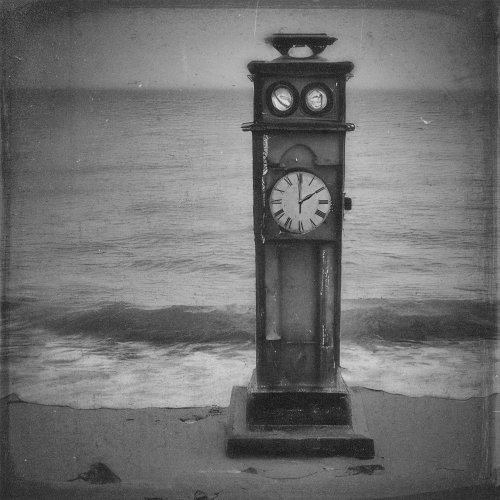
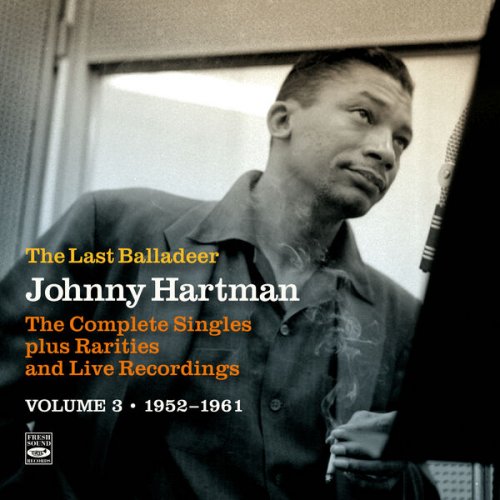
![Asher Gamedze - A Semblance: Of Return (2026) [Hi-Res] Asher Gamedze - A Semblance: Of Return (2026) [Hi-Res]](https://www.dibpic.com/uploads/posts/2026-02/1772032727_a2374104512_10.jpg)
